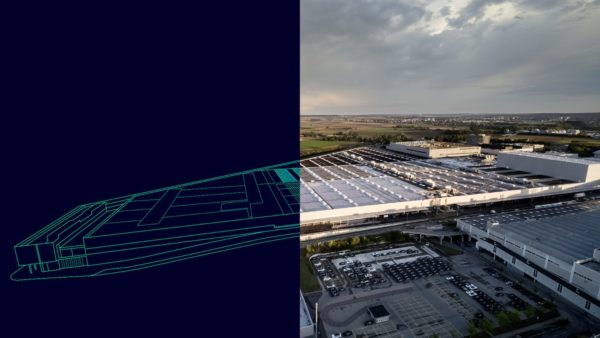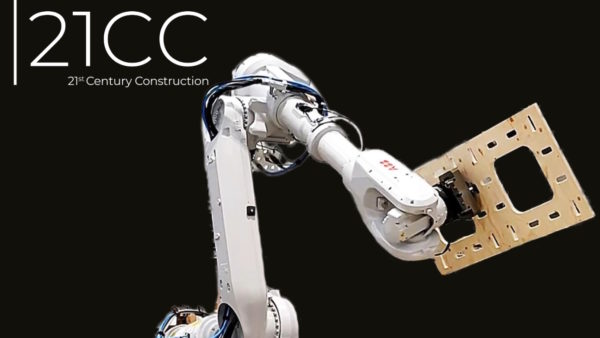Generative design and quantum computing are attracting the attention of Raphael Scheps, co-founder and CEO of Converge, whereas Stephen Coppin, associate technical director at Arcadis, is banking on BIM to improve H&S.

Raphael Scheps
What is your New Year resolution?
My role at Converge is very outwards facing: I spend a lot of time on the road meeting customers, investors and partners. We have some incredibly ambitious goals this year, which include shipping three new products, and building out ConstructionDNA, our digital twin and data platform for construction. One of my resolutions is to spend more time with our team and less on the road, to help realise Converge’s ambitious vision for 2020.
What piece of kit might you buy in the sales (non-work)?
A pair of Faction skis, but I’ll have to wait until the end of winter to find them on sale. In the meantime, I’ll settle for lots of powder snow in Jan/Feb.
What is your most important lesson learnt from 2019?
In 2019 we launched a new version of ConcreteDNA (our concrete strength sensing product) and set up key alliances with our closest customers to deliver ConstructionDNA, our platform for construction and sensor data.
Transitioning from a single product to delivering our wider vision was incredibly. Two key lessons come to mind:
- the importance of building a mission-aligned board and team. This was key in moving from one product to a suite of sensors and ConstructionDNA. It required crystallising our vision into an easy to communicate roadmap, and providing everyone on the team with context for why that roadmap is important;
- and moving organisations forward requires a singular focus on the future, sometimes at the expense of what may seem like necessary day-to-day activities. It is easy to deliver on business as usual work, but moving forward as an organisation requires taking drastic leaps. This can impact short-term operations negatively, but has a transformational impact on the future, and pays off sooner than you’d expect.
What innovative technology are you most excited about in 2020?
In construction: generative design (the use of artificial intelligence to optimise design of structures), and novel materials that reduce the carbon impact of the industry (eg cement free concretes, carbon negative materials). Outside of construction: quantum computing, which has the potential to revolutionise many industries in the next decade, and space technologies which are advancing at an incredible rate.
What individual or company is one to watch this year?
I have seen a number of exciting construction technology start-ups emerge in the last few years. Examples which I think are delivering some really innovative products to market include Spacemaker AI, and Scaled Robotics. And I wouldn’t be doing my job if I didn’t mention Converge!
Which construction technology do you think might make the leap into mainstream adoption this year?
I believe 2020 will be the year where artificial intelligence and live digital twins (based on data generated by people, sensors and machines) will start to truly impact how field teams plan and execute their work on site.
Both have been used quite a lot at the design phase of construction already, but not on site during delivery. With the proliferation of sensor data and the increased data-readiness of the industry, real-time digital twins will bring much-needed optimisations and visibility to the delivery and orchestration of projects.
What do you see as potentially the biggest barrier to digital construction progress in 2020?
The purchasing model for technology in construction is not fit for purpose. There are no standard contractual templates, or appropriate procurement models for technology products in the industry, and the purchase of SaaS products is not well understood by commercial teams.
Frameworks like NEC are inappropriate for these sorts of products, which makes it difficult for example to be procured on infrastructure projects or JVs. Principal Contractors are also wired up to purchase things at project level, rather than HQ-level, so there is a mismatch between the standard enterprise SaaS technology model which has worked well in many other industries and the way the construction industry likes to procure things.
This will need to change before the construction industry is truly able to leverage the value SaaS and data products can offer.
What industry event are you looking forward to attending?
BuiltWorlds Summit in Paris. I attended their inaugural European event last year, and it was an excellent place to meet contractors and technology companies that are passionate about new construction technologies. One of the outcomes from the event for us was a strategic alliance with the Vinci group through their catalyst programme. I would highly recommend it.

Stephen Coppin
What is your New Year resolution?
To identify clients and working groups who are willing to make difference and share lessons learnt to improve our industry.
What piece of kit might you buy in the sales (non-work)?
A newer iPhone.
What is your most important lesson learnt from 2019?
To focus on working with individuals who are not only team players, but want and are trying to make a positive difference.
What innovative technology are you most excited about in 2020?
An application that actually combines the CDE with BIM and AR for projects rather than being separate for flagging up and tracking significant H&S issues and risks.
What individual or company is one to watch this year?
A client or organisation that can demonstrate the advantages and positive benefits of applying the principles of PAS 1192-6 from at least RIBA stage 2 than traditional Design & Build from Stage 4/5.
Which construction technology do you think might make the leap into mainstream adoption this year?
At least the combination of 4D presentations at the start of the design – using BIM to illustrate how a project will progress in size, over time, address significant health & safety issues and risks and cost – not only for buildability, but for the lifecycle of that asset regarding cleaning, maintenance access, glazing and plant replacement etc. Reducing unnecessary risks and waste through inception to operation of that asset.
What do you see as potentially the biggest barrier to digital construction progress in 2020?
Clients not understanding the benefits of utilising digital early and their procurement not placing into contracts that the initial designers should use a specified federation model platform from at least RIBA stage 2.
What industry event are you looking forward to attending?
Still looking at various, however the Digital Transformation EXPO Manchester 2020 in March seems an option.
Image: Jakarin Niamklang/Dreamstime.com















